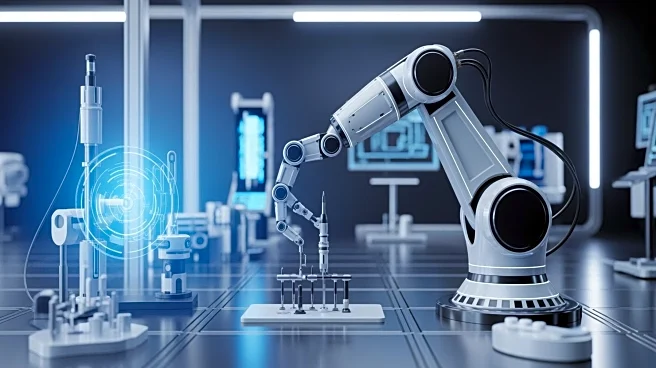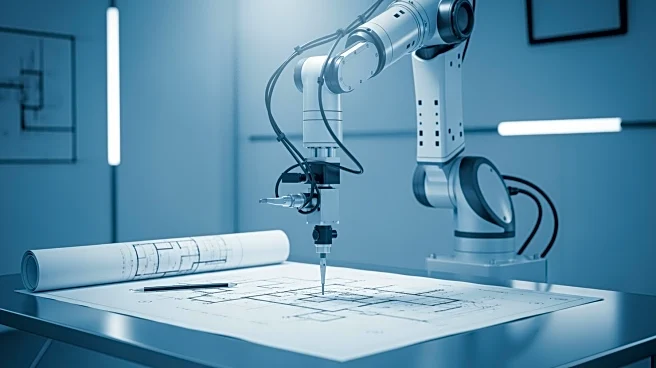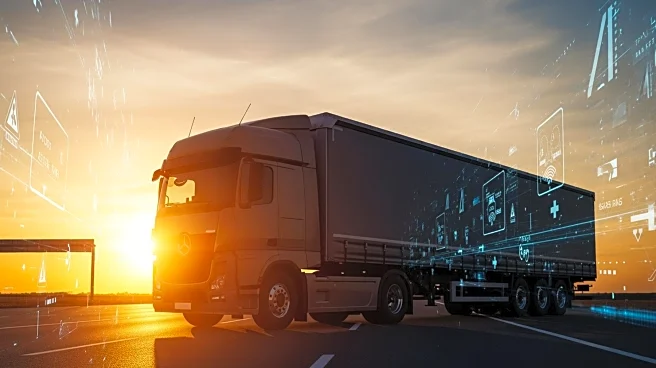What's Happening?
Elon Musk is seeking to expand Tesla's operations beyond electric vehicles, focusing on robotics and artificial intelligence. Musk aims to achieve ambitious targets, including delivering one million robotaxis
and one million Optimus humanoid robots. He faces potential interference from shareholder advisory firms ISS and Glass Lewis, which he criticizes for their influence on institutional investors. Musk's plans include a $1 trillion pay package contingent on Tesla meeting these goals, highlighting his financial and technical ambitions.
Why It's Important?
Musk's vision for Tesla represents a significant shift in the company's strategic direction, potentially transforming it into a leader in robotics and AI. This expansion could redefine industry standards, influencing global markets and technological advancements. The potential interference from advisory firms underscores the challenges of corporate governance in high-stakes innovation. Success in these endeavors could position Tesla as a dominant force in multiple sectors, impacting economic stakeholders and technological development.
What's Next?
Tesla shareholders are set to vote on Musk's proposed pay package, which could significantly impact the company's future direction. The outcome will determine Musk's control over Tesla's strategic initiatives, including the development of robotaxis and humanoid robots. The decision may influence investor confidence and market perceptions of Tesla's long-term viability. Continued innovation and expansion in robotics and AI are expected, with potential regulatory and competitive challenges.
Beyond the Headlines
Musk's pursuit of a robot workforce raises ethical and societal questions about automation and employment. The integration of AI and robotics in everyday life could lead to significant shifts in labor markets and economic structures. The balance between technological advancement and social responsibility will be crucial in shaping the future of work and industry standards.










